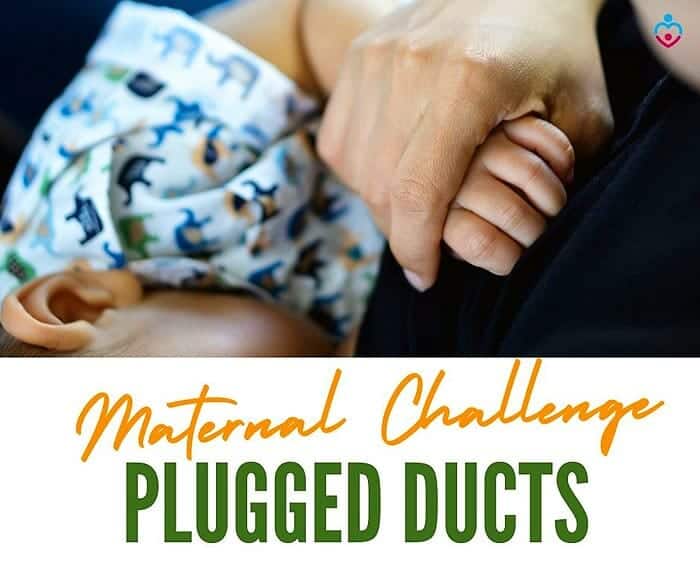
Plugged ducts are often confused with Mastitis, but they are essentially very different affections that nursing mothers can deal with. Plugged ducts are areas of your breasts that are blocked which prevents breastmilk from going through them.
While plugged ducts could be a side effect of mastitis, this is mainly an infection with flu-like symptoms. Plugged ducts can happen on one or both breasts, and they can range from mild to severe.
What causes plugged ducts?
Plugged ducts can happen to any nursing mother. This condition is usually due to restricted milk flow in one or both breasts.
- If you suffer from breast engorgement, you are more prone to develop plugged ducts as your breastmilk will be clogged instead of flowing.
- Skipping baby meals can also lead to plugged ducts. Made sure to pump your milk and store it properly rather than simply skip a meal. Skipping meals can often happen as your baby sleeps longer or you go back to work.
- Inflammation can also cause plugged ducts, especially if it is left untreated for too long. Yeast infections, allergies, or injuries are all common causes of breast inflammation.
- Also, an increased level of stress will weaken your immune system and result in plugged ducts. If you suffer from anemia or chronic fatigue, you should address these issues as they can lead to plugged ducts in the first phase of your breastfeeding.
Suggested Reading:
![]()
Symptoms of Plugged Ducts
The symptoms of plugged ducts could differ from one nursing mother to another. However, in general, we can note some common symptoms to keep an eye on.
- Plugged ducts can reduce milk flow in one or both breasts, depending on how severe the condition is. Consequentially, if your breastmilk is not flowing naturally, you might experience breast engorgement issues.
- Some cases of plugged ducts generate a lump in one or both of the breasts. This lump can be painful or not, and the size of it will vary.
- If you notice any lump in one area of your breasts, it is crucial to check it out with your doctor as soon as possible to rule out more severe conditions and get the proper diagnosis.
If you have plugged ducts, you might also experience different pain levels during or immediately after nursing your baby.
Suggested Reading:
![]()
Treatment for Plugged Ducts
Plugged ducts can quickly escalate into mastitis if they are left untreated. So, if you suspect that you suffer from this condition, it is essential to talk to your doctor and find the best treatment.
- If you have plugged ducts, it is essential to keep breastfeeding your baby and pump your milk. If you skip nursing meals, you are at risk of worse conditions such as developing an abscess or severe infection.
- You should also make sure you get the rest you need and stay hydrated. Keeping a nutritious diet, low in salt and fast foods, and rich in fruits, veggies, and lean meat, as well as fish, will also offer you a robust immune system and help with plugged ducts.
- Some of the medications for plugged ducts include analgesias such as pain killers or anti-inflammatory medication.
- Your doctor will prescribe you the best medication for your condition and the correct dosage you will have to respect.
- Usually, plugged ducts don't require the administration of antibiotics unless it develops into an infection or a more severe condition.
- While some measures you can take at home to help with your plugged ducts condition, it is crucial to see your doctor get the proper treatment.
![]()
If you identify this condition early, you will not have to deal with many of its side effects, and you will be able to heal faster.
![]()



